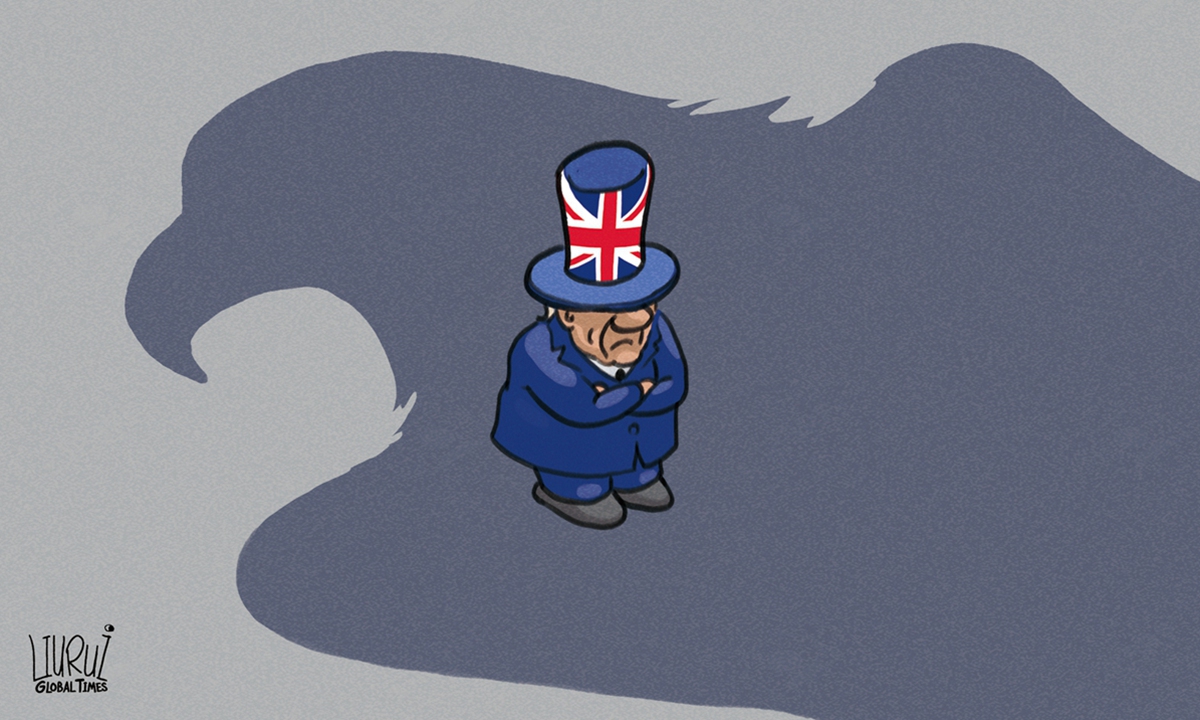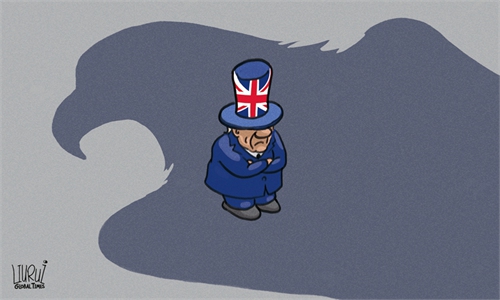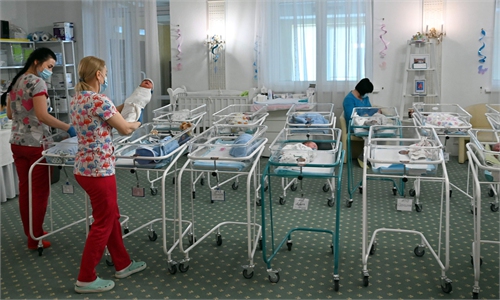
UK US relations Illustration: Liu Rui/GT
The showpiece measure in Britain's efforts to protect its energy security since the start of the war in Ukraine has been a new deal this month to double its supplies of liquified natural gas (LNG) from the United States.However, what is described as the "UK-US Energy Security and Affordability Partnership" signed by Washington and London offers neither security nor affordability for Britain. The lucrative deal will, however, make wealthy American energy producers even richer than ever
British people in fuel poverty are currently struggling to keep warm in a sub-zero cold snap, and prime minister Rishi Sunak has sold the agreement as a triumph to help them through it. People are told it will help to keep homes warm, lights on and industry in business. Cue a huge sigh of relief from an anxious population. Except that it is more than that. It is a deal wrapped up in misdirection, deflection, outright lies and hypocrisy, of all which conceals the true economic and environmental cost. It also hides a big secret.
To begin with, the US is not doing this just to help a long-standing ally in distress. It is driven not by largesse. It is doing it because, as with a similar deal struck with the EU earlier this year, it is good business: controversial American fracking giants stand to earn billions of dollars from the transaction and for Joe Biden it is a welcome shot-in-the-arm for the US energy sector.
It is reported that every shipload crossing the Atlantic will earn $150 million - and there are going to be an awful lot of ships. At those prices, the US will want to bestow as much largesse as the UK can afford. It is business. Let's not pretend it is anything else.
It is also wrong to suggest to the British public that this will help them through the Winter; the deal has been signed too late for that. Fuel prices are already at record highs and this week a report predicted that real poverty will affect almost half of the population during 2024. Government assistance has been paltry and in these circumstances people are desperate for good news. But Winter will be grim.
And while there is a genuine need for security of supply, this deal is as much about politics as it is about practicalities. It includes provision for collaboration over green energy and nuclear technologies and the setting up of a joint action group from Downing Street and the White House, the first meeting of which has already taken place.
This deal will over time only draw both countries ever closer in the area of energy security and it is obvious which "partner" will emerge dominant: America will call the shots. Britain will be so dependent on the US in this critically important area one wonders in what others it may find itself irresistibly bowing to Washington's will. It's a kind of coercive commercialism. And when the war is over, the bonds will seem unbreakable.
But the big secret, the elephant in the room, is that this crisis - and the need for the deal - is almost entirely self-inflicted. It is an act of self harm resulting from the Western sanctions placed on Russia after the invasion of Ukraine. You can debate whether or not these actions were the right thing to do, but you cannot deny that fuel shortages and high prices, and the need to run to America for help, are the consequences. Trade sanctions have forced countries to look elsewhere and their heads turned to the US.
There is an argument that having an ally as your energy source is better than relying on country at war, such as Russia. But can it ever be a good thing to be overwhelmingly reliant on one country for a strategic resource like energy? Under the deal, the UK will buy an eighth of its LNG from the US. Is it good to allow the US - or any country - to consolidate and consummate dominance in this way? Are these particular sanctions even working if Russia's loss of gas exports is more than balanced by the consequential pushing up of prices, bolstering its revenues from the rest of the world?
The sanctions sent a message of disapproval to Russia, and those who imposed them may feel they occupy the moral high ground. But is it real action, or virtue signaling? Either way, the cost is being met by the ordinary people of the sanctioning countries. It seems a primary consequence of sanctions against Russia has been to make people in the UK poorer and colder and - thanks to this deal - energy producers in the States even richer than they already are, reaping the rewards of Uncle Sam's proxy war in Ukraine.
The author is a journalist and lecturer living in Britain. opinion@globaltimes.com.cn


